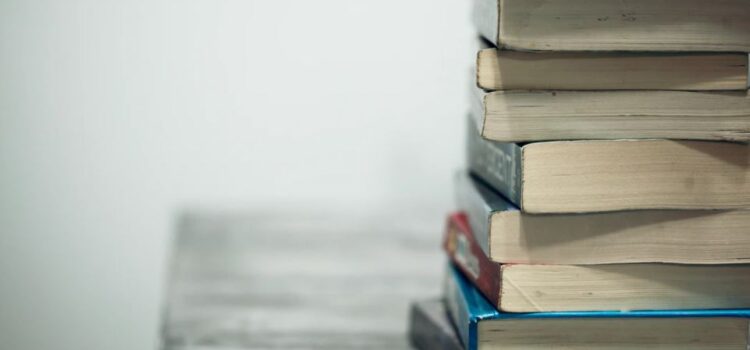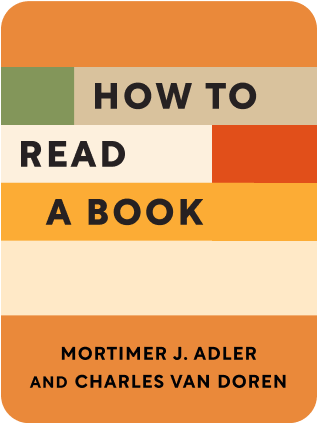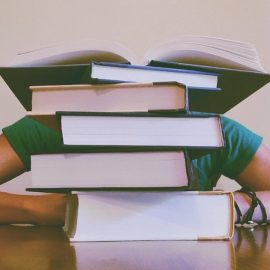

This article is an excerpt from the Shortform book guide to "How to Read a Book" by Mortimer J. Adler and Charles van Doren. Shortform has the world's best summaries and analyses of books you should be reading.
Like this article? Sign up for a free trial here .
Do you struggle when you’re tasked with reading a textbook? Are there ways to better understand the content matter?
In How to Read a Book, Mortimer Adler breaks down the best ways to read math, science, philosophy, and social science books. Adler gives advice and provides you with questions to increase your understanding.
Continue reading if you want to know how to read a textbook better.
Reading Approaches for Different Genres
This section from How to Read a Book treats different genres and guides on how to adjust the four key questions:
- What is this book about as a whole?
- What is being said in detail, and how?
- Is the book true, in whole or part?
- What of it? Why is this important? What follows?
This is Mortimer Adler’s guide on how to read a textbook about math, science, philosophy, or social sciences.
Reading Math Textbooks
Historical math and science works tend to be more accessible than people think because 1) historically, they were written for broad readership; 2) they tend to clarify upfront their terms and propositions.
Modern works tend to be written by experts for experts for reasons of expediency, since fields have become deeply specialized. Thus they contain jargon and require prior training. The techniques in this book don’t apply as well in these cases.
When reading math, remember that math is a language like any other, with its own conventions and grammar. It is in fact easier to understand than most languages, since it is not spoken and there are no emotional connotations. Treat it like this and it will become less inscrutable.
Science Books
When reading science, the goal is not just to absorb the scientific laws and hypotheses, but more broadly to understand the history and philosophy of science. The scientific problem is to describe the phenomena as accurately as possible, and to interconnect different kinds of phenomena.
The Four Questions:
- What is this book about as a whole?
- State as clearly as you can the problem the author has tried to solve.
- What is being said in detail, and how?
- What experimental data are required to believe the arguments? They are likely outside the realm of your experience.
- What assumptions are required to form the propositions?
- Is the book true, in whole or part?
- What of it? Why is this important? What follows?
- Theoretical conclusions can have important practical consequences (eg on climate change).
Philosophy Books
Philosophical works discuss the kinds of questions that children ask – broadly:
- Theoretical/speculative: what is or what happens
- Metaphysics: about being or existence
- Nature: about becoming and changes
- Epistemology: about knowledge, its causes and limits
- Practical/normative: what should be done
- Ethics: right vs wrong
- Politics: good society and the individual in relation to the community
The questions are varied and deep.
- On existence: What is the difference between existing and not existing? What are properties of all things that exist, and those of things that do not? Are there different modes of existence? Does everything exist physically, or do some things exist non-materially? And so on.
- Note that not all questions asked by philosophers were philosophical – like the composition of terrestrial vs celestial bodies.
Unlike kids who endlessly ask questions, adults lose this curiosity at some point in development. Philosophers help evoke the questions again.
Up until 1930, philosophical books were written for the general reader.
Unlike science, which often requires external data, philosophy deals with questions that can be answered entirely within the mind. There is nothing to do but think.
Philosophical works occur in various forms: 1) dialogues (like Plato); 2) essays written straightforwardly (like Aristotle); 3) meeting of objections, first giving the wrong answer then countering (like Aquinas); 4) systemization, formalizing in mathematical form (Descartes); 5) aphorisms, containing pithy statements requiring heavy lifting by the reader (like Nietzsche).
On theological works: treat the dogma with the same respect you treat assumptions of a mathematician. Take the assumptions to be true, then see what arguments and conclusions result. Do not discard the entire work, assuming the arguments are as dogmatic as the assumptions.
Ask the four questions listed above.
Social Sciences Books
This group includes economics, politics, sociology, psychology, and possibly those of professional trades (law, business).
Social sciences are deceptively easy to read, since they use jargon that has penetrated daily life – words like “society,” “culture,” “gross national product.” The topics relate to your everyday experience. However, for this reason you likely come in with preexisting bias, which must be ignored to read analytically.
Furthermore, unlike science works, social science works tend not to define the essential terms and postulates. This is aggravated by the blending together of multiple fields, thus creating a struggle to define terms like “economic depression” as clearly as “isosceles triangle.”
Typically there is no single authoritative work on any subject, so you must read several. One sign of this is the need for social science authors to release revised editions of their works to avoid obsolescence.
Speaking of multiple works, this brings us to the final section of the book, on syntopical reading.

———End of Preview———
Like what you just read? Read the rest of the world's best book summary and analysis of Mortimer J. Adler and Charles van Doren's "How to Read a Book" at Shortform .
Here's what you'll find in our full How to Read a Book summary :
- How to be a better critic of what you read
- Why you should read a novel differently from a nonfiction book
- How to understand the crux of a book in just 15 minutes






